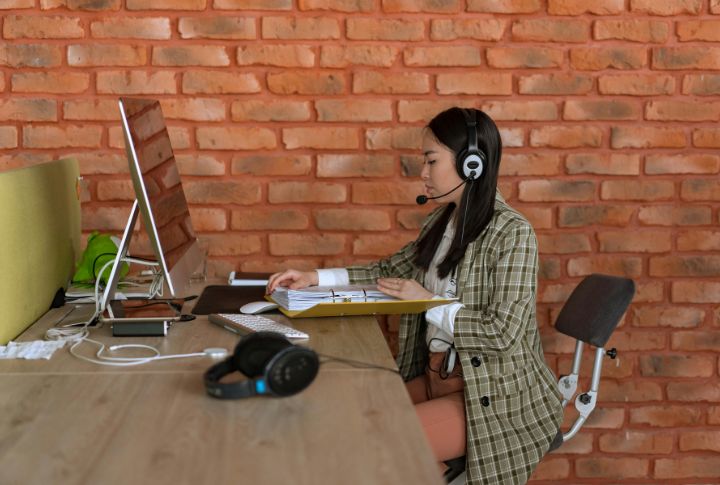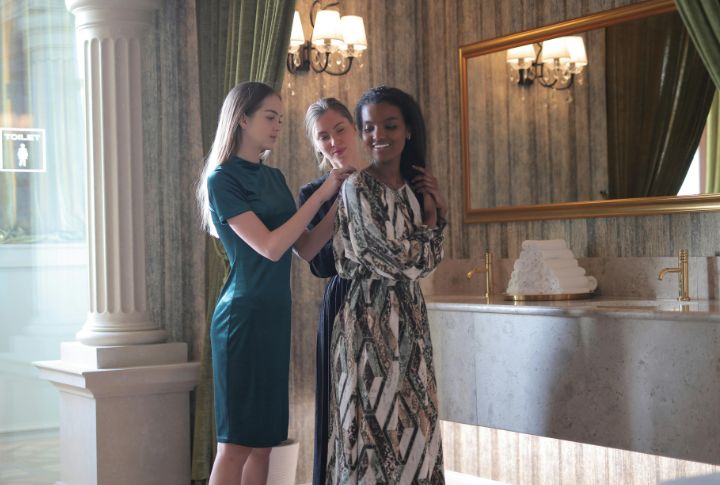
Workplaces have evolved, but courtesy hasn’t gone out of style. In hybrid offices and open spaces, etiquette is less about rigid rules and more about emotional awareness. It’s the art of creating harmony through small, thoughtful actions. Here are the unspoken office courtesies that keep modern workplaces calm and connected so that everyone enjoys being a part of it.
Replace What You Finish Without Being Asked

It’s amazing how something as small as an empty coffee pot or the last cookie can shift office moods. These small oversights subtly communicate disregard. Offering to replace what you take is about respect. That simple act of replenishing transforms silent irritation into shared accountability.
Respect Headphones As They Mean “Do Not Disturb”

In the modern office, headphones have replaced closed doors. They’re the universal sign that someone’s deep in focus, not just vibing to music. If you interrupt, it derails productivity. So, before you tap a shoulder, remember: those earbuds are the new “Busy” sign.
Small Gestures Strengthen Culture

A brief “good morning” or “hey there” in the hallway might seem trivial, but these micro-interactions build trust and belonging across teams. Greeting others signals awareness and inclusion, both of which are essential for a healthy office environment. A few words exchanged daily can do what meetings can’t.
Keep Bathroom Chats Out Of Bathrooms

Some spaces are for conversation; others are for quick escapes. Bathrooms fall in the latter category. When friendly chatter drifts into these private zones, it disrupts privacy and creates social discomfort. Keep talk light and brief—or better yet, save it for the hallway where everyone can breathe easy.
Don’t Critique Coworkers’ Lunch Choice

Everyone’s meal tells a quiet story. If you comment uninvited on what someone eats, even jokingly, it can cross personal boundaries fast. Modern professionalism thrives on sensitivity. Unless your coworker brings it up first, it’s best to let lunches be just that, private moments of personal preference.
Treat Lunch Hours As Sacred Time

Midday breaks are now mental resets. So, scheduling meetings during lunch signals disregard for personal time. It also breeds resentment instead of results. Respect this window as it allows employees to recharge fully. Save discussions for before or after.
Mute Before You Join That Call

Virtual meetings are today’s conference rooms, and background noise is their greatest saboteur. Science shows that sudden sounds spike stress and break focus. Hit “mute” the moment you enter a meeting is cognitive kindness, as it helps everyone stay fully present for the discussion.
Avoid Questioning Why Someone Leaves Early

That coworker walking out at 4:30 doesn’t owe anyone an explanation. Personal schedules often hide unseen responsibilities. If you ask why they’re leaving early, it can feel intrusive. Let silence replace curiosity. Respecting privacy builds trust faster than any small talk ever could.
Give Space While Waiting To Speak

Standing too close to someone’s desk while waiting sends an unspoken signal: “I’m watching.” It pressures them, even if you mean well. Instead, maintain a polite distance or send a quick message. That small spatial awareness helps preserve focus and keeps the workplace calm and considerate.
Respect Seating Habits In Shared Rooms

That chair by the window might not have a name, but everyone knows who sits there. People build subtle attachments to familiar spaces that ground their daily rhythm. Taking someone’s chosen seat, even by accident, disrupts that comfort. Awareness of these micro-territories fosters silent harmony.
